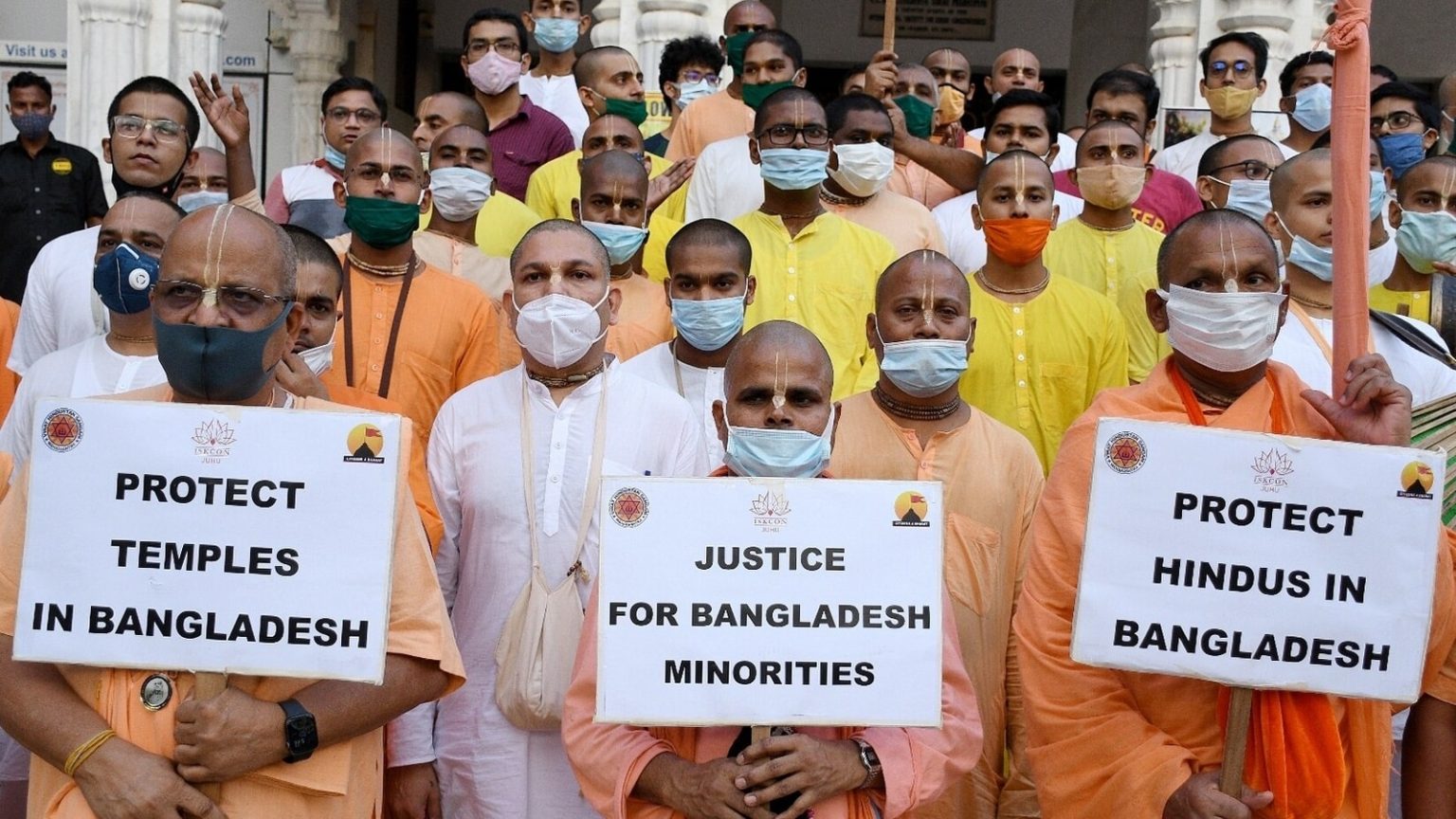A new petition in Bangladesh calls for a ban on ISKCON, accusing the group of being a “radical organisation” that threatens national security. The Dhaka high court on Thursday declined to issue a suo motu order “to ban ISKCON’s activities in Bangladesh”, after being informed that the government had already taken necessary actions.
Supreme Court lawyer Md Monir Uddin had submitted newspaper reports on ISKCON’s activities and requested the court to impose a ban and enforce Section 144 in Chattogram, Rangpur, and Dinajpur. The court then asked the attorney general to report the government’s actions concerning the ISKCON. On Thursday, the attorney general’s office informed the court that three cases had been filed regarding the murder of lawyer Saiful Islam Alif and ISKCON’s activities, with 33 people arrested.
The bench emphasised the need for the government to ensure law and order and protect the lives and property of Bangladesh’s citizens.
What did the petition say?
Amid rising concerns over the treatment of minorities in Bangladesh, a new petition has been filed calling for a ban on the International Society for Krishna Consciousness (ISKCON) in the country. According to the Dhaka Tribune, the legal notice accuses the organisation of being a “radical organisation” involved in activities that threaten national security and stir up communal unrest.
The petition, submitted by Supreme Court lawyer Al Mamun Russell on behalf of 10 other legal professionals, demands the prosecution of those responsible for the alleged murder of government legal officer Advocate Saiful Islam. The notice was directed to Bangladesh’s Ministry of Home Affairs, Ministry of Law and Justice, and the Inspector General of Police on Wednesday. As per the Dhaka Tribune report, the notice claims ISKCON operates in Bangladesh as a “radical organisation,” allegedly fueling sectarian violence and promoting religious intolerance.
The petition also links ISKCON to the alleged murder of a lawyer during protests following the arrest of Chinmoy Krishna Das, attributing it to the group’s “blatant disregard for law and order.” It further accuses ISKCON of forcibly recruiting members to impose its beliefs on traditional Hindu communities, taking over Sanatan temples, evicting members of the Sanatan community, and even attacking mosques.
ISKON priest’s arrest
The high court’s decision comes amid the controversy surrounding the arrest of former ISKCON Bangladesh priest, Chinmoy Krishna Das Brahmachari, on sedition charges, which sparked protests and unrest in the country.
Since the fall of Sheikh Hasina’s Awami League government on August 5, Bangladesh’s minority Hindu community has faced over 200 attacks, including assaults on their temples, according to the Foundation for India and Indian Diaspora Studies (FIIDS).
Das, who was arrested on Monday in connection with the sedition case, was denied bail by the court, leading to protests by community members in several cities, including Dhaka and Chattogram. He was a former member of the International Society for Krishna Consciousness (ISKCON), was recently expelled from the organisation.



